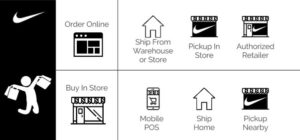To say that China’s Cross Border E-Commerce (CBEC) is booming is underplaying it. The import and export trade in China is as old as mankind, but over recent years, the numbers have been skyrocketing!
Not The “World’s Factory” Anymore
China’s retail imports pertaining to cross-border e-commerce totaled around 88.6 billion USD in 2019, representing a significant 21 percent increase over the previous year. Businesses in China and around the world are lining up for a piece of this cake.
More than 500 participants from over 20 countries met in November 2019 for the 10th China Cross-Border E-Commerce Conference & Exhibition and the 5th Global E-Retailing China Summit to discuss growth plans, new market entrances, AI potential, and other topics. The future of China’s CBEC sure looks promising!
So What Exactly is Cross Border Ecommerce?
Cross border e commerce, in general, refers to any international transaction of a commodity or service between two parties over an online marketplace platform. We can distinguish between:
• B2C: Business-to-consumer
• B2B: Business-to-business
• C2C: Individual-to-individual
There are several alternatives accessible to you while creating an online presence (we are talking about your company website here) for your business in China:
• Make your own web page (needs to be in Chinese, on a Chinese domain)
• Make use of an enormous e-commerce platform. Tmall, for example (good visibility, reliable and good environment for your business but high competition)
• WeChat shop with mini-programs (embedded within the WeChat App and gives you complete control over content, design, pricing, and so on.)
Most major global businesses have a presence on one or more of these platforms since it gives them a lot of market exposure and allows them to take advantage of the platforms’ high quality and visibility.
CBEC has a special distinction in China, allowing multinational enterprises to sell their products to Chinese clients – at advantageous duty rates and without the need for a business licence. A majority of cross-border trade is carried out by corporations from other Asian countries, with Japan and Korea leading the way, closely followed by the United States.
Daniel Wang, the creator of a cross-border business, expressed his belief in Chinese cross-border ecommerce. In the next decade, he expects cross-border ecommerce sales to account for more than 30% of China’s overseas trade:
“Cross-border e-commerce will play a more and more important role in promoting international trade-in 2021 since digital transformation has emerged as a key pathway to mitigating the impact [of the pandemic] on traditional trade.”
Source: https://www.intouch-quality.com/blog/walmart-will-invest-big-to-update-its-supply-chain
Read our previous blog to know what our co-founder, Ophenia Liang, has to say about the steady but rapid growth of Chinese e-commerce despite the Coronavirus outbreak.
Cross-border E-commerce Trade – A Silver Lining Amidst The Pandemic
According to analysts, the coronavirus outbreak will present an opportunity for Chinese cross-border e-commerce platforms such as AliExpress and JD.com to accelerate their foreign operations and close the gap with Amazon.
As the ongoing pandemic has dampened many Chinese consumers’ habit of “shopping abroad” over the last year, cross-border e-commerce platforms are currently the only avenue for many domestic consumers seeking overseas products. They have become a highland for international companies looking to discover & retain consumers in the world’s second-largest economy.
The rising cross-border e-commerce trade between China and other countries has proven to be a crucial component in the recovery of foreign enterprises still suffering from pandemic-related problems. It has also proven to be a silver lining for global trade in the aftermath of the pandemic.
In Closing
After the implementation of China’s new eCommerce Law 2 years ago, all major cross-border eCommerce sites have completed their transition to full compliance, and the China market is now, more than ever, open to international brands looking to sell across borders. The industry is now more coordinated and standardised than in previous years, adhering to a strong set of requirements. Cross-border channels are now a particularly lucrative way for international brands to sell in China.
Digital Crew has a lot of experience and expertise in this field, and we’ve helped many big brands succeed in China when it comes to cross-border eCommerce. Get in touch with us if you would like to learn more about what we can do for you and your business.























